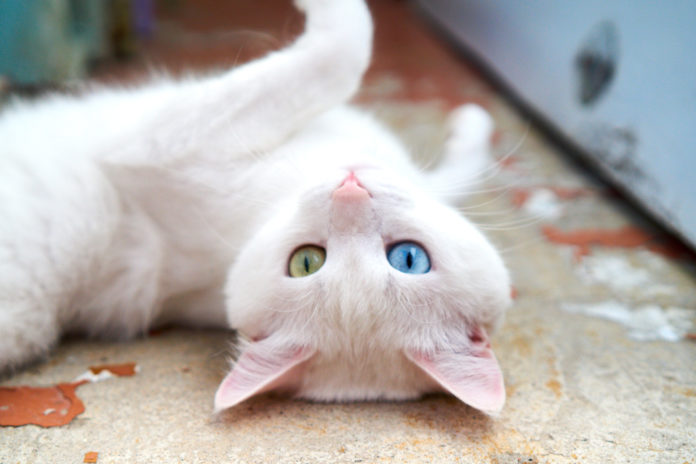DNA testing tells you a lot about your cat – and it’s also important to science

From her ancestry to her genetic makeup, DNA testing can reveal some fascinating facts about your cat, while helping scientists learn more about the feline genome.
Have you ever wondered about your cat’s genetic background? Maybe you want to know which breeds might make up her genes, or are curious about whether or not her coat color influences her personality. Perhaps you’d like to find out if she has any genetic health conditions so you can be proactive about preventing them from manifesting. Having a DNA test done on your cat can answer all these questions and more – and it can also contribute to our scientific understanding of the feline genome.
Feline DNA tests are readily available and don’t require a visit to your veterinarian. Sample collection is easy: you simply swab the inside of your cat’s inner cheek, place the sample in the provided test tube, and return the sample to the lab. Once the sample has been analyzed, you will receive a comprehensive report about your cat’s genetic makeup.
Ancestry, genetics, and more
- A DNA test can give you fascinating details about your cat’s ancestry. The majority of household cats are rescues or mixed breeds, and in most cases, we know nothing about their origins. A DNA test can show you the breed composition of your cat, and the associated personality traits.
- DNA testing also offers valuable information about your cat’s genetic makeup, including her susceptibility to diseases that have a hereditary component. Some of the more common genetic conditions are hypertrophic cardiomyopathy, polycystic kidney disease, and deafness. “Understanding your cat’s breed profile is a proactive step towards better preventative care, says Anya Cuzmenco, ChiefMarketing Officer of Basepaws, a company that offers feline DNA tests to consumers.
- The Veterinary Genetics Laboratory (VGL) at the UC Davis School of Veterinary Medicine offers a variety of different tests. Choosing which one to run depends on what a cat parent wants to learn about. “Most often, genetic testing is helpful for making informed breeding decisions or clinical management decisions,” says Dr. Rebecca Bellone, the lab’s Director. “Clients also use our services to better understand the genetics behind traits of interest — for example, coat color.” The VGL website offers a search tool that enables clients to search by breed or trait type such as coat type/color, health, or parentage/genetic marker.
DNA testing as citizen science – the 99 Lives Project
A DNA test doesn’t just provide information about your own cat. By submitting your cat’s sample, you are also participating in a massive research study aimed at sequencing the feline genome.
The 99 Lives Project at the Feline Genetics and Comparative Medicine Laboratory at the University of Missouri School of Veterinary Medicine focuses on the genetics of the domestic cat, and the development of genetic tools and resources that assist gene mapping in cats and other companion animals. Feline research is focused on the discovery of mutations that cause inherited diseases and phenotypic traits and on the population dynamics of breed development and domestic cat evolution.
“The goals of the 99 Lives Project are to identify DNA variants that cause genetic diseases and traits in domestic cats and to provide a genetic resource to felid researchers,” says Dr. Leslie A. Lyons, project head and a Professor of Comparative Medicine, Veterinary Medicine and Surgery. A larger database of feline DNA will advance this important research. “Bring forward your cats that may have a genetic problem, for DNA sequencing,” urges Lyons (http://felinegenetics.missouri.edu/new-goals-for-2020-2021).
“VGL clients are given the option to also participate in research when they order genetic testing,” adds Dr. Bellone. “So by testing with us, they are also contributing to efforts to advance the knowledge of cat genetics.”
“As our database grows and more cats join us, our ability to make new discoveries will improve,” Anya continues. “Some of these may take only a few months, while others will take years.” Basepaws actively seeks out cats who suffer from devastating disease for which there is little scientific knowledge available. “Such samples will help us advance feline genetic science quicker,” Anya says.
Having DNA testing done on your cat is a great way to learn more about your particular kitty’s ancestry, genetic makeup, and susceptibility to inherited disease. Taken a step further, it also advances science’s understanding of the feline genome, leading ultimately to better well-being for all cats.




